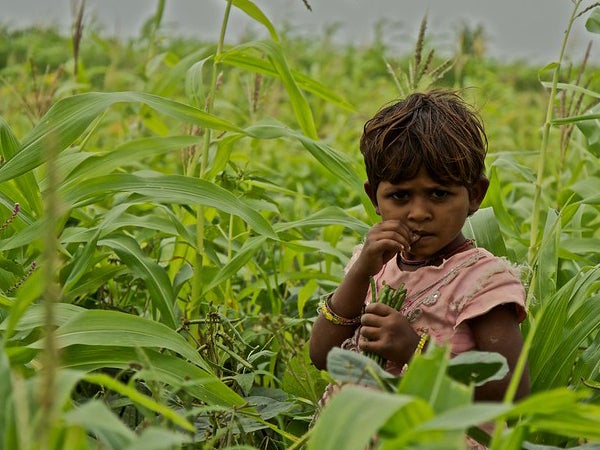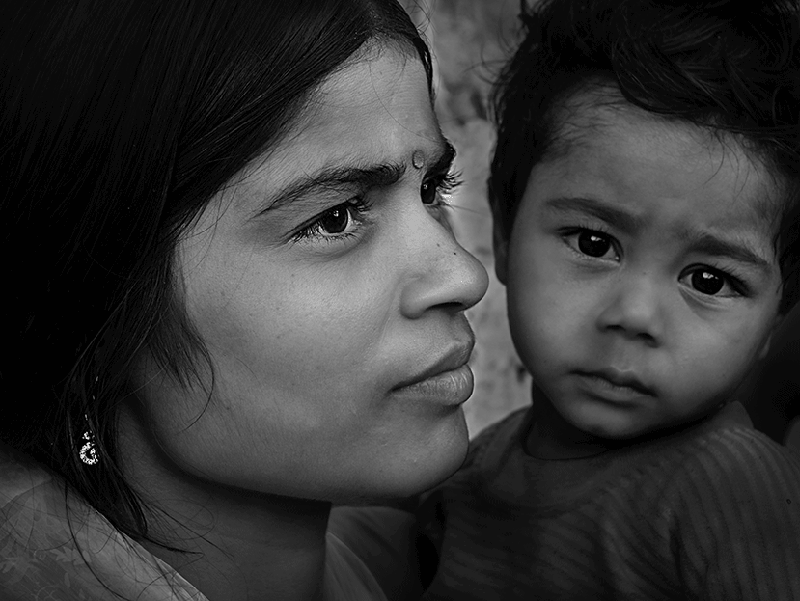An investigation published in JAMA Network Open Global Health reports that currently relied-upon anthropometric measures (i.e., stunting, underweight, wasting) may not be comprehensive enough to accurately assess global child undernutrition. Harvard Pop Center researchers Rockli Kim and S V Subramanian, along with their colleagues Markus Heemann and Sebastian Vollmer, suggest that dietary and food-based measures should be factored in as well. Photo: EU Civil Protection and Humanitarian Aid on Flickr
Nutrition-specific interventions may not be best way to prevent stunting in India
Child anthropometric failures — such as stunting, underweight, and wasting — were found to be more closely linked with past and current socioeconomic conditions, such as mother’s stature, BMI and education, and household wealth and air quality, than diversity of diet, Vitamin A supplementation and breastfeeding initiation. The study by Harvard Pop Center research associate Rockli Kim, faculty member S V Subramanian, and former Bell Fellow Daniel Corsi, and their…
Continue reading “Nutrition-specific interventions may not be best way to prevent stunting in India”
Is there a female disadvantage in India when it comes to nutrition?
Not according to a paper published in the Journal of South Asian Development by former Bell Fellow Daniel Corsi, PhD, and Harvard Pop Center faculty member SV Subramanian (Subu), PhD. Although previous studies have found there to be a female disadvantage in India when it comes to mortality, allocation of food within households, and healthcare coverage, the researchers in this study did not find there to be consistent evidence of…
Continue reading “Is there a female disadvantage in India when it comes to nutrition?”

